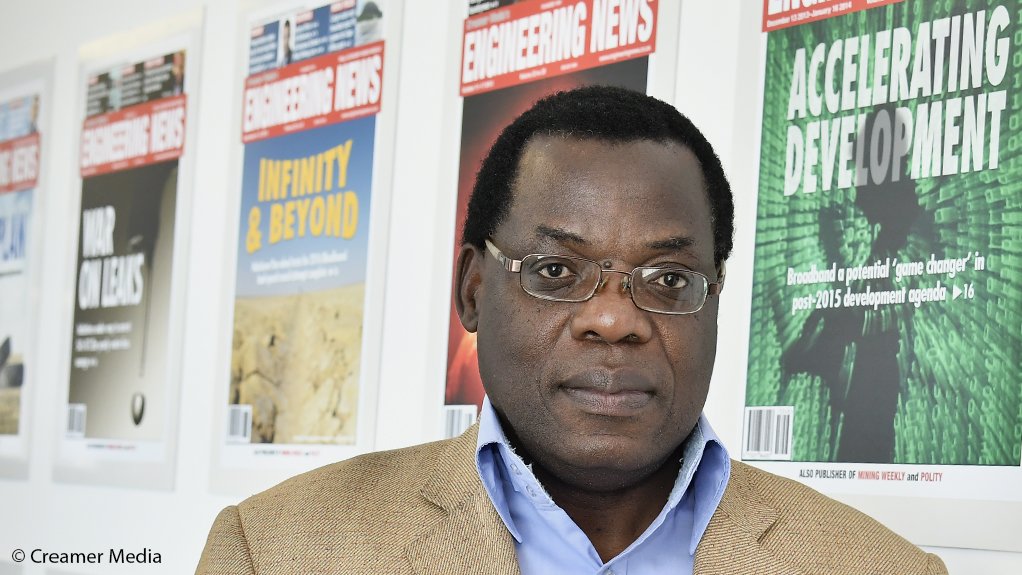In this opinion piece, Engineering News Senior Deputy Editor Martin Zhuwakinyu writes about the late Robert Mugabe.
As news of the demise in the wee hours of September 6 of former Zimbabwe President Robert Mugabe broke, keyboard warriors went into a frenzy. One tweet encapsulated the predominant sentiment. It cited a quip by legendary American lawyer Clarence Darrow, who said in 1922: “I have never killed anyone, but I have read some obituary notices with great satisfaction.”
It’s not hard to tell why attitudes towards Mugabe would be so harsh. He caused international outrage in 2000 when he violently evicted most of the country’s 4 000 white farmers from their land, which he went on to redistribute to black Zimbabweans. Granted, land dispossession was one of the key grievances that sparked the 1970s war that ended colonial rule and it was perhaps immoral for a minute minority to own huge tracts of arable land, while millions of peasants were crammed in arid parts of the country. But there was no justification whatsoever for the injustice visited upon the farmers.
The farm seizures sent ripples throughout the economy. Agricultural production plummeted and food-processing and other companies – including those focused on export markets – closed shop, depriving the country of the ability to earn foreign currency. Banks, which had hitherto used land as collateral when lending to farmers, suddenly found themselves with a lot of bad debt. With no guaranteed property rights, foreign direct investment tumbled. To meet Zimbabwe’s obligations to domestic and foreign creditors, Mugabe ordered the central bank to print money, leading to the twenty-first century’s first hyperinflation, estimated by some at about 79.6-billion per cent in November 2008. The economy shrank, resulting in 80% unemployment. Many Zimbabweans voted with their feet, and a significant Zimbabwean diaspora is to be found in neighbouring countries and elsewhere.
The world will also remember Mugabe as an autocrat who brooked no opposition, using a highly politicised military to maintain his grip on power from 1980 – when the then British colony of Rhodesia became the newly independent State of Zimbabwe – until his ouster by his erstwhile lieutenants in November 2017. A blatantly biased electoral commission, which he packed with cronies, helped ensure his political longevity.
Whereas the outside world reacted with deafening stridency to Mugabe’s excesses during the 17 years from the time he launched his so-called agrarian reforms until his ignominious departure from office, there was only muted outrage in the 1980s when he deployed a North Korean-trained army brigade to quell disturbances in the Midlands and Matabeleland provinces. These provinces are home to mostly Ndebele-speakers, who comprise about one-fifth of Zimbabwe’s population, and were the stronghold of a political party led by Joshua Nkomo, his political archrival at the time. An agency of the Catholic church estimated that 20 000 Ndebeles perished between 1983 and 1987. The bloodletting ended only when Nkomo agreed to merge his party with Mugabe’s and to serve in government.
What I will never understand is that, despite the 1980s atrocities in Matabeleland and the Midlands, undeniably Mugabe’s worst excesses, he continued to be feted in foreign capitals. Many top universities awarded him honorary degrees, a US nongovernmental organisation named him the winner of the Africa Prize for Leadership for Sustainable End to Hunger in 1988 and Queen Elizabeth II knighted him in 1994.
Mugabe’s dark side overshadows the good done by this former child prodigy who qualified as a primary school teacher while still a teenager, before earning seven university degrees. He sacrificed a promising career as an educationalist in a newly independent Ghana to join the struggle for his country’s independence, and spent 11 years in political detention. When he became Prime Minister in April 1980, he preached and practised reconciliation in his racially and ethnically diverse country and immediately set about expanding access to education and healthcare for all.
The big tragedy about Mugabe – who once vowed before an election that Zimbabwe, “which was won by the barrel of the gun, should [not be let] go at the stroke of a pen” – is that the system he installed is very much alive. Its hallmarks are autocracy, electoral fraud, corruption, impunity, et cetera.
EMAIL THIS ARTICLE SAVE THIS ARTICLE ARTICLE ENQUIRY FEEDBACK
To subscribe email subscriptions@creamermedia.co.za or click here
To advertise email advertising@creamermedia.co.za or click here











